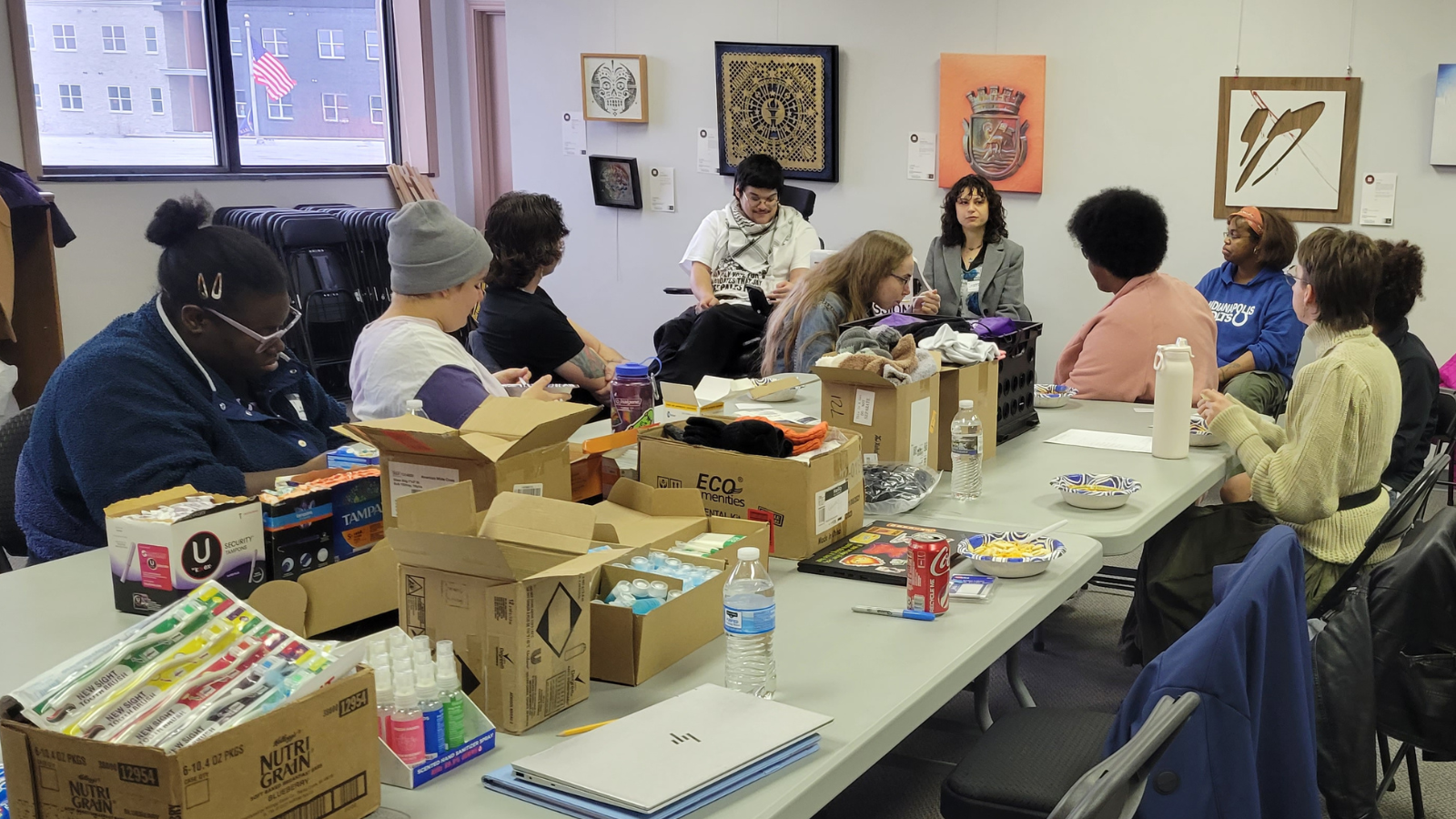In protest of the United States’ ongoing celebration of the genocide-sanitizing holiday of Thanksgiving, Hope Packages partnered with the Community Food Box Project for our November assembly to host a lunch and panel discussion on land dispossession. Attendees enjoyed chili and cornbread, assembled 65 care packages for the homeless community, and learned about legacies of genocide and their impact on food sovereignty. Our discussion centered around cultural histories of slavery, Indigenous land dispossession, and war—specifically about the Japanese colonial occupation of Korea and the Zionist occupation of Palestine. The goals outlined in our 10 Point Program call for universal housing and food access, and at this event our panelists focused on how colonization violently denies these human rights.
Riley Park, a member of PSL and Nodutdol, asked the volunteers in attendance, “Who here has heard of the Korean dish buddae jiggae?” At least a half-dozen hands went up. Riley would go on to explain that the name means ‘army base stew.’ During the U.S. bombing campaign and occupation of Korea, food production on the peninsula was devastated. The only places with food were American army bases. Korean people would dumpster dive at the bases for food to escape starvation, giving way to the signature dish we know today.
Doris Jones, co-founder of Hope Packages, brought up another historical instance of colonial histories surviving in our foods. She explained how many Black American soul food dishes came from smuggled seeds that survived the Middle Passage, such as okra and greens, or the meager rations that enslavers offered, such as chitterlings. Our last panelist, Che, a member of the Navajo nation and a friend of one of our organizers, gave yet another example: frybread. When Navajo people were displaced by the U.S. government to reservation lands that were poor for farming, new dishes were born out of the disruption of traditional foodways, such as frybread. As an organization that hands out food every month to as many people as we can, it’s important to remember that food is threatened by both capitalism and colonialism.
After the panel, Riley spoke to the importance of direct aid and political education when countering these forces: “We’re not only having conversations and connecting with one another but we’re also building the infrastructure needed to go against the capitalist system that we are under… especially in this city where there are so many barriers to food and housing.”
We are immensely grateful to our panelists for offering their time and experience for our event. Their contributions enabled a thoughtful discussion on the actions, small and large, we can all be taking to counter the multiple ongoing U.S. genocides. We also want to thank Sierra Nuckols, the president of the Community Food Access Coalition and the founder of the Community Food Box Project, for her role in planning the event and moderating the panel.
Hope Packages’ work is made possible by our volunteers and sustainers, and we are always looking for new opportunities for collaboration. Be on the lookout for knitting and crochet events in December; feel free to reach out if you have these skills or are open to learning!
To support our work, we invite you to make a one-time or recurring donation through the Hope Packages Sustainer program. You can also send us supplies for our monthly assemblies through our Amazon wish list. If you’re interested in becoming a volunteer, you can send us an email or fill out Hope Packages’ volunteer form!
Community Food Box Project also welcomes new volunteers; you can contact them via phone or email. We look forward to seeing you at future events!
Featured image: Hope Packages volunteers discussing the true history of Thanksgiving. Credit: Indianapolis Liberation Center

